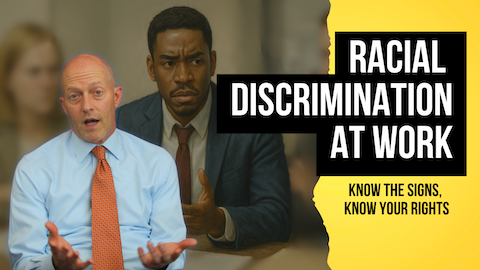
When your employer has clearly violated employment law, it may seem like an open-and-shut case from your point of view.
Unfortunately, the law isn’t that simple. There are plenty of pitfalls along the way to filing and winning a case against an employer. Some mistakes lessen the final result you had hoped for, while others might prevent you from even having a case in the first place.
Make you avoid these critical mistakes when bringing a case against your prospective, current, or former employer.
1. Waiting Too Long to File
Filing a case can be a long and stressful process. However, if you don’t take action fast enough, you won’t have a case because of statutes of limitations.
A statute of limitation is a law that lays out a specified time frame within which you can file your case. Once that period expires, you cannot bring a claim against your employer — no matter how strong your case.
There are various statutes of limitations in employment law, depending on the type of case.
But a key one for most discrimination cases is filing your claim with the Equal Employment Opportunity Commission. The statute of limitations is either 180 days or 300 days from the incident, depending on the state:
- 180 days if your state has no agency with a work-sharing agreement with EEOC
- 300 days if your state does have a work-sharing agreement with the EEOC
If you wait until even one day beyond the appropriate deadline mentioned above, and you lose your case forever.
With that in mind, find out immediately what your statute of limitations is. Then, file your claim — either on your own or by hiring an attorney — as soon as possible.
2. Not Knowing Their Ask
Labor and employment cases can be emotional for the employee, making it easy to concentrate on what went wrong.
However, you have to look ahead and focus on the result you want from your case. In other words, know your ask.
In most cases, this will be financial compensation, such as severance.
Whatever demands you have from your employer, work out your realistic best-case scenario. If you went all the way through the process, what’s the best result you could achieve?
Keep in mind that your employer may be willing to give you your ask or something close to it if your demands are reasonable. Making unreasonable demands of your employer can make your case harder. An attorney can sit down with you and, based on their experience with similar cases, work out a reasonable result to pursue.
3. Not Understanding the Process
You don’t have to have an attorney’s knowledge of an employment case’s proceedings, but having a basic understanding of the process is helpful.
That way, you can decide how far you’re willing to go with your case and look for opportunities to resolve the case.
For example, if you have an EEOC-worthy claim, inform the employer you’re filing with the EEOC. Doing so conveys to the employer that you understand and are engaged with the process. They’ll take you more seriously.
Now, perhaps they don’t give you your ask after informing them of your intention.
Are you willing to then actually file with the EEOC and go through the mediation process? This takes additional time and effort, but you might get what you want here.
If mediation doesn’t work, would you be willing to take things to court? Remember, attorneys cost money, and showing up to court is a large commitment.
It’s all about cost and benefits. Are you willing to keep going to get your exact ask? Or do you want to minimize the time spent pursuing the case, even if it means getting less than you hope for?
Don’t Make These Mistakes
Labor law is complicated. Many people who attempt to navigate the process alone often make one of these critical mistakes and either fail to receive the results they want or completely lose the chance to bring their case against their employer.Your best bet to avoid making errors along the way is to work with an experienced employment attorney. We’re here to assist — contact us today if you believe you have a case and need help.




